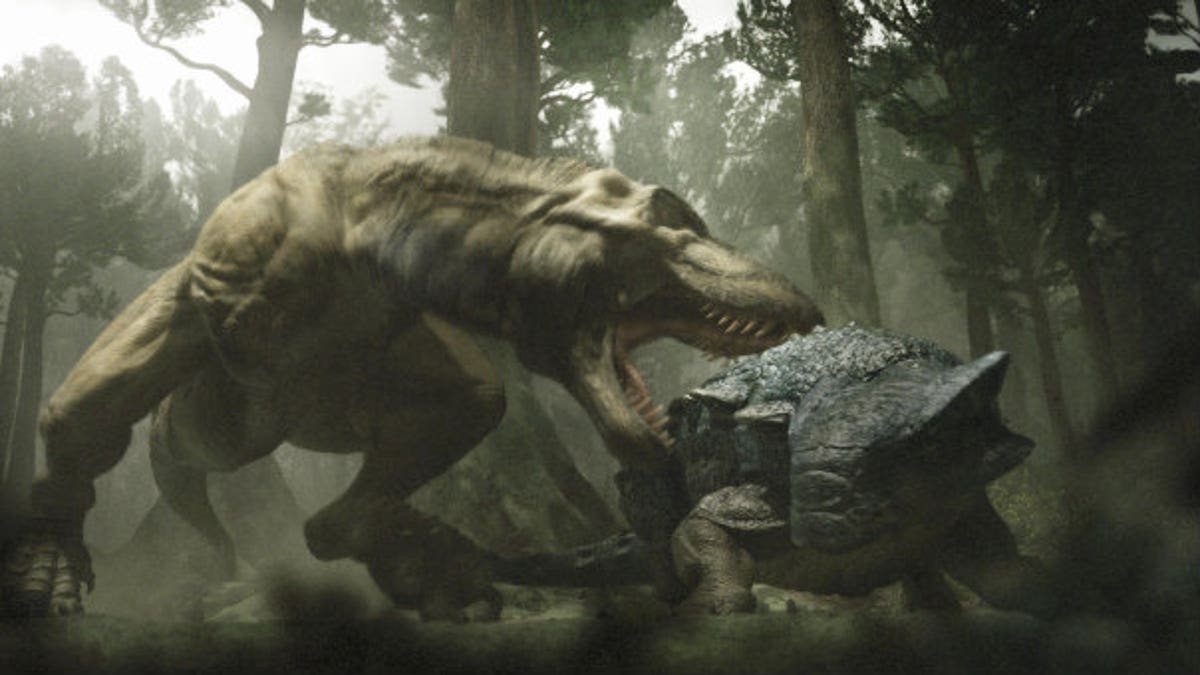
Mighty steps forward in computational power and computer-rendering ability allowed Discovery's artists to depict dinosaurs as never before, letting viewers see realistic skin and views deep inside their bodies, for the series "Clash of the Dinosaurs." (Discovery Channel)
LONDON – Dinosaurs may have farted themselves to extinction, according to a new study from British scientists.
The researchers calculated that the prehistoric beasts pumped out more than 520 million tons (472 million tonnes) of methane a year -- enough to warm the planet and hasten their own eventual demise.
Until now, an asteroid strike and volcanic activity around 65 million years ago had seemed the most likely cause of their extinction.
[pullquote]
Giant plant-eating sauropods were fingered as the key culprits in the study, which appears in the latest edition of the journal Current Biology. An average argentinosaurus, weighing around 90 tons (82 tonnes) and measuring 140 feet (42m), chomped its way through half a ton (half a tonne) of ferns a day, producing clouds of methane as the food broke down in its gut.
LaserSaber: Live out your Jedi fantasies in real life
Professor Graeme Ruxton from St. Andrews University in Scotland and co-researcher David Wilkinson, from Liverpool John Moores University, worked out just how much of the greenhouse gas the billions of dinosaurs would have generated during the Mesozoic era, starting 250 million years ago.
"A simple mathematical model suggests that the microbes living in sauropod dinosaurs may have produced enough methane to have an important effect on the Mesozoic climate," Wilkinson said. "In fact, our calculations suggest these dinosaurs may have produced more methane than all the modern sources, natural and human, put together."
Pursuit of Light: NASA's latest dose of awesome
The dinosaur output of 520 million tons (472 million tonnes) is comparable to current natural and man-made emissions of the greenhouse gas, which scientists say is around 21 times more powerful than CO2 at trapping heat on Earth and causing climate change. Cows and other farm animals globally contribute up to 100 million tons (90 million tonnes) a year of methane.




















